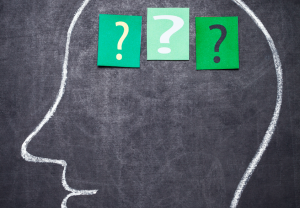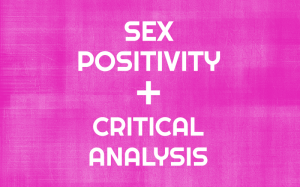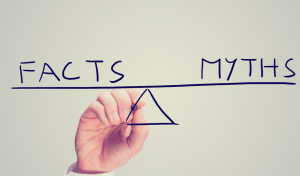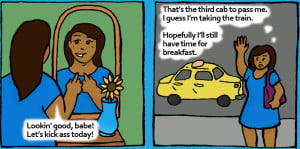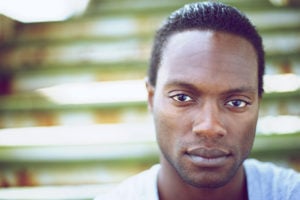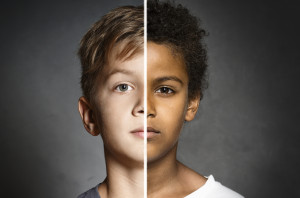
A person signing the word “conflict” on a black backdrop.
Incredibly, some leftist activists still fail to recognize ableism as a social justice issue.
But from the 200,000 disabled people murdered during the Holocaust, to the ugly legacies of eugenics and prison-like institutions for the disabled, to the 2016 attack against disabled people in Japan, both history and the present are awash with examples of governments and individuals enacting ideologies which aim to maintain a “pure” and healthy gene pool.
And like any other oppression, ableism doesn’t just take the form of “obvious” violence. Disabled people experience institutional discrimination in jobs and education; lack of representation in politics, art, and media; extremely high rates of abuse and neglect; and dangerous stereotyping.
Ableism is further compounded by factors like gender, queerness, race, class, age, and colonialism, among other oppressions. It must be part of any conversation regarding intersectionality – and yet, even in social justice spaces, it often isn’t.
The following are six ways in which various leftist activists, from liberals to radicals to those who even make claims on “revolution,” regularly fail to keep ableism in check.
1. Organizing Non-Accessible Events and Spaces
In my early twenties, I was involved in several post-9/11 antiwar actions. We would take a cheap bus from Boston to New York or Washington, DC to protest and attend trainings all weekend. Local churches would let us sleep on their basement floor or strewn across their pews.
This felt very anarchist and “DIY” at the time. But I remember a friend who was older (she was actually not yet forty) who had chronic pain and GI issues. She had been invited to travel with us and speak at an event. The healthy, young organizers had looked at her with disdain, as if she wasn’t punk rock enough, when she said these church-pew sleeping accommodations were ageist and ableist.
I’m only 33 now, but I’ve been diagnosed with Ehlers-Danlos Syndrome (EDS). There is no way I would be able to take that cramped bus ride or sleep on that pew now. This is to say nothing of more “visible” disabilities which require things like wheelchair accommodations.
All too often, in the name of a DIY ethic that centers minimalism and self-sufficiency over comfort and health, “radical” events happen in spaces that alienate people with a wide range of disabilities.
2. Implying That Public Protest Is the Ultimate Activism
Participation in public protests like marches and sit-ins, and even getting arrested for acts of civil disobedience, is often implicitly held as the pinnacle of anti-oppression activism. Yet in order to safely participate in many of these activities, one has to be physically healthy and mobile.
Emotional and cognitive issues like developmental disabilities, autism, anxiety, and PTSD can also play a role in one’s ability to publicly protest. This is not to mention the other myriad reasons people might not be able to show up, like concerns about undocumented immigration, childcare, police brutality, or losing one’s job.
This doesn’t mean these types of actions aren’t necessary or useful; indeed, they are some of the most important tactics ever employed in various fights against injustice. The problem arises when we don’t examine our assumptions about what legitimate activism looks like, and when we discount less obvious types of social change that have been equally important, including the radical act of letting oneself safely rest when oppressed and weary.
3. Moralizing Alternative Transportation
I always wanted to be the environmentalist who was so radical I walked, biked, and hitchhiked everywhere. But one time, I passed out on a long ride trying to keep up with my bike punk friends. Another time, I threw up and keeled over.
Years after giving up cycling as an achievable mode of transportation, I found out that, due to EDS, I had dysautonomia, or autonomic nervous system dysfunction. This leaves me with abnormally low blood pressure, wide variations of heart rate, heat and cold intolerance, GI tract issues, and proneness to passing out. In short, it’s impossible for me to be a serious cyclist.
I have friends who have barred cars from their life to an impressive degree, cycling miles a day in all weather. I commend them. I even have friends who state they’ll never travel long-distance again unless it’s by hitchhiking or trainhopping, two supposedly anti-capitalist modes of transportation.
But any moralizing about alternative transportation must be tempered by an acknowledgement that many of those modes are only available to the able-bodied – and that, by definition, if a “radical action” excludes underprivileged populations, it might not be so radical.
Many physical and mental conditions leave people dependent on cars and handicapped vans. Not everyone can ride their bike to the revolution. This doesn’t mean alternative transportation isn’t incredibly important. It just means we need a more nuanced conversation about what social change looks like and who, allegedly, is or isn’t doing it.
4. Able-Splaining ‘Big Pharma’ and Holistic Health
From controversial funding, to overmedicating children, to animal testing, there are so many necessary critiques to be made of the pharmaceutical industry. Some of the most compelling and important come from disabled people themselves.
But people who eschew holistic treatments are not wrong or ignorant. Some would literally die without the mainstream treatments they undergo. Others would experience orders of suffering that you will simply never understand as an outsider.
Yes, this includes controversial drugs like opiates and psychopharmaceuticals that lefties love to hate. If you are someone who has never experienced chronic pain or debilitating psychiatric symptoms, but you find yourself preaching against these drugs, stop. Your privilege is showing.
Furthermore, the notion that alternative medicine is inherently more pure or ethical than Western medicine is a dangerous one. In the United States, alternative medicine is itself a $13 billion industry filled with unregulated products that people pay incredible sums for, out of pocket.
Alternative medicine in the US employs class and capitalism in its own very specific ways to profit on disenfranchised groups like the disabled and sick. There’s currently almost zero room in leftist US discourse for this very legitimate concern.
As someone with EDS, I’ve experienced so many frustrations with Western medicine – and just as many with able-bodied people and holistic practitioners preaching uninformed, absurdly expensive, and sometimes dangerous advice:
Do yoga! (Yoga is contraindicated for EDS; in fact, it might have harmed me.) Take supplements! (EDS is genetic and incurable; supplements cannot change it any more than they can your eye color.) You’re vegan and that’s the problem; go on a paleo diet and eat bone broth! (Yes, EDS has musculoskeletal manifestations and “bone broth” has the word “bone” in it, but it would literally be just as effective to tape chicken bones to my arms and chant, “Cool, all healed!”)
Able-bodied lefties, next time you feel the urge to able-splain a disabled person’s problems to them, preach the evils of Western medicine, or give unsolicited advice about holistic treatments, stop.
Disabled people are not props in your holistic health and anti-capitalism crusades. In fact, they are the experts. Not you. Helping means taking your place as a listener and learner instead of always acting like a teacher.
5. Policing and Enforcing the Use of Academic Rhetoric
I attended a panel on feminism and art at an elite private college that was explicitly publicized as an inclusive event for the community. I teach at a community college, where many of my students are people of color, disabled people, and folks who are not fluent in English, so I excitedly told them about it.
Additionally, I almost invited an acquaintance who was a trans woman living in a conservative rural town. She had spent her life as a manual laborer and, after finally coming out as queer in her sixties, felt so bullied and unsafe that she left her job. She had literally not one queer or feminist ally and struggled with bipolar disorder, PTSD, and addiction.
I left the event angry, entirely relieved that none of these individuals had ended up attending on my invitation.
While the panel was somewhat diverse in terms of race, the oldest person on the panel was forty; it was clear she was considered an anarchist elder. It was questionable enough that nobody on the panel remotely addressed age or disability.
But then several nonacademic audience members asked questions wherein they tried, but failed to correctly use words like heteronormative, transmisogyny, and cispatriarchy. The panel broke into an extended “calling out” of these folks, labeling them oppressors and leaving them visibly shaken – even though what they really were was simply nonacademic.
Imagine if the aforementioned rural, poor, mentally ill trans woman had shown up and been the one to ask those questions and be shamed in this “call out” – a woman who didn’t fit the bill as the hip urbanite with the luxury education, yet who desperately needed solidarity. Or any number of my remedial community college students who had spent their academic lives struggling against ableism and/or racist, colonialist alienation.
Are academic terms and concepts important? Yes! Is a purist use of them more important than inclusivity and compassion? Never. Ensuring spaces which center the least privileged experience must come first – always.
I never had a cognitive, emotional, or physical condition that required extra time or accommodations, or that kept me from attending school altogether. My education was in my native language and that language is a dominant, colonialist one. Yet still it took me several years of intensive study to feel I had begun to master the nuances of concepts like cisheteropatriarchy.
It’s not that academic, “intellectual” English has no place; it’s that academics need to recognize it as a dialect of privilege and measure this against their goals when organizing “community” events.
It’s the height of so many “isms” – ableism included – to presume that one’s own intellectual or academic achievement is the neutral standard against which all should measure themselves, and to call out people on that basis.
Just because someone doesn’t completely understand your words, doesn’t mean they aren’t as oppressed or revolutionary as you.
6. Ignoring and Invalidating People with Invisible Disabilities
Folks with relatively visible disabilities, such as those requiring wheelchairs or braces, come up against innumerable social obstacles. From implications that they must be completely helpless and depressed, to assumptions that they are asexual or not fully adult, to the idea that they exist to be inspirational, these folks encounter seemingly bottomless ignorance.
People with “invisible disabilities” struggle in unique ways, too. Loved ones, doctors, co-workers, allies, and strangers regularly imply that our symptoms are exaggerated or made-up and that we aren’t trying hard enough in our various social roles. We don’t “look sick,” after all. Stereotypes around gender, sex, race, age, class, and culture can exacerbate these assumptions.
But countless disabilities and illnesses are not accompanied by an external signifier – by some estimates, a full 96%. Diagnoses as varied as cancer, PTSD, migraines, IBS, Crohn’s Disease, fibromyalgia, HIV/AIDS, mental illnesses and cognitive disorders, epilepsy, multiple sclerosis, autoimmune diseases, and more can be relatively unnoticeable to outsiders.
People who struggle with such diagnoses have critical reasons why they might need to, say, use the public transit handicap seat or the handicap bathroom. They might have to skip that radical event you planned. It is an act of intrusive gate-keeping to put them in the psychological and social position of having to defend themselves.
Don’t assume you are an expert on another’s subjective experience of their own embodied existence, whether in regards to gender, sex, physical and mental ability, race, culture, or any other factor. Oppressive societies are built, in part, when the powerful make such assumptions.
***
This list is not exhaustive.
From ableist slang, to the nasty ableism of the anti-vaccination movement, to insensitivity around disability in right-to-die debates, there are countless arenas where activists accidentally show their privilege by ignoring or decentering those without it.
This October, for Disability Awareness Month, I challenge all able-bodied leftists to develop awareness of where they land in this part of the matrix of privilege and oppression, and to start educating themselves and others towards a truly inclusive and compassionate worldview.
[do_widget id=’text-101′]
Carolyn Zaikowski is the author of two novels, In a Dream, I Dance by Myself, and I Collapse (Civil Coping Mechanisms, 2016) and A Child Is Being Killed (Aqueous Books, 2013). Her fiction, poetry, and essays have appeared in Denver Quarterly, Entropy, The Rumpus, PANK, Dusie, Nebula: A Journal of Multidisciplinary Scholarship, and elsewhere. Find her online at www.carolynzaikowski.com and on Twitter @carolynzzz.
Search our 3000+ articles!
Read our articles about:
Our online racial justice training
Used by hundreds of universities, non-profits, and businesses.
Click to learn more
Most Read Articles
- « Previous
- 1
- …
- 30
- 31
- 32





